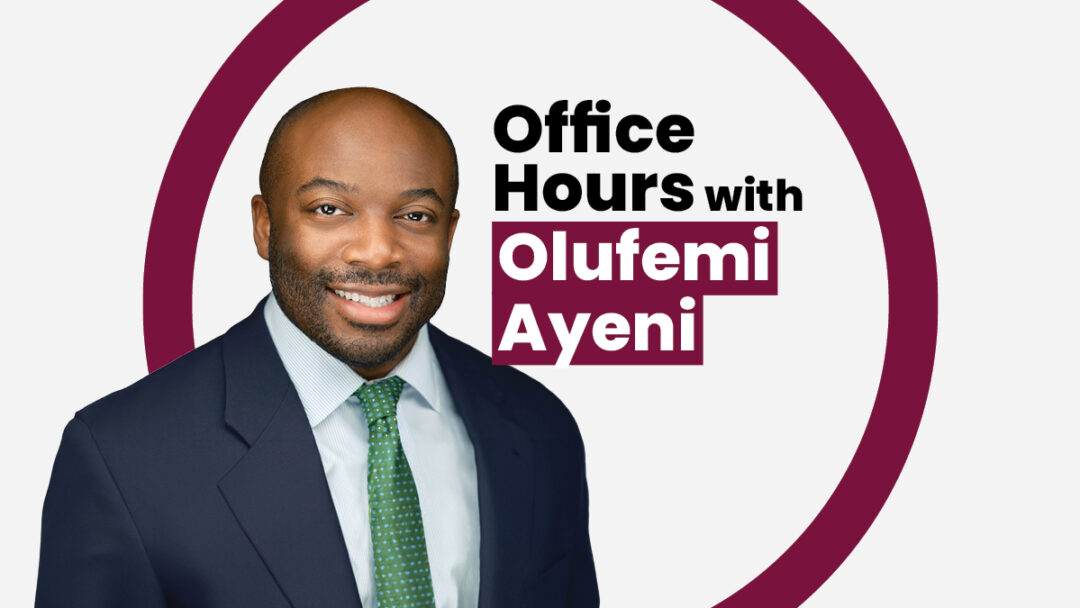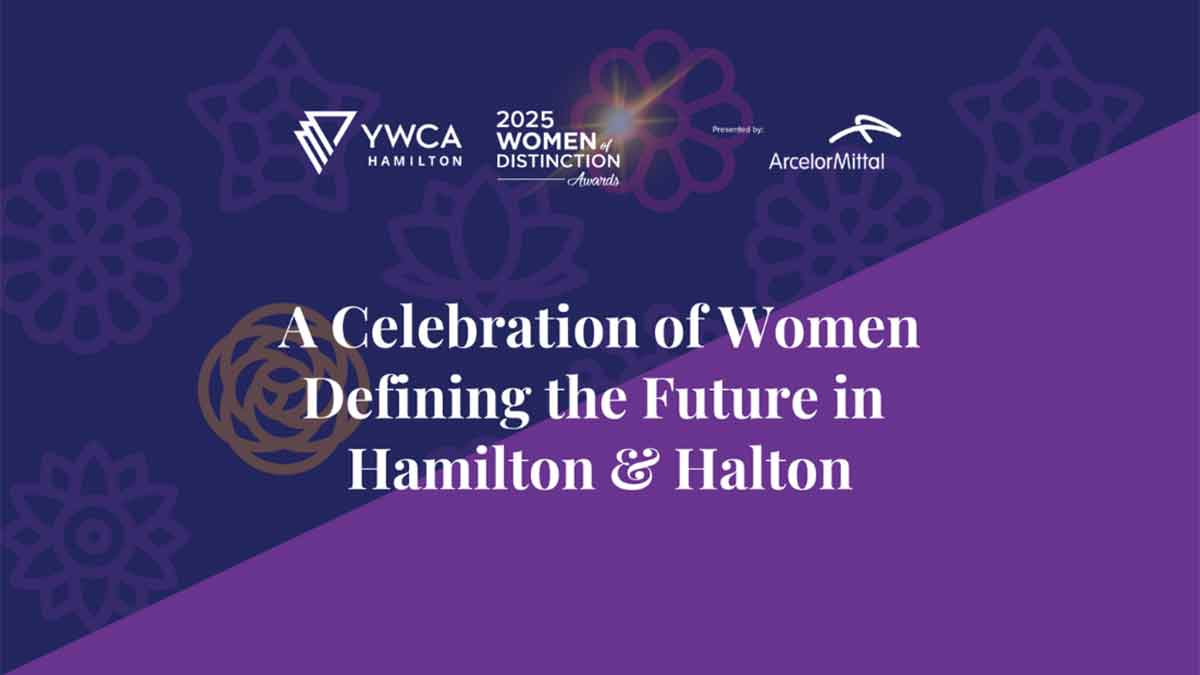Office Hours with Olufemi Ayeni

Olufemi Ayeni has spent his whole life on a team – he just didn’t always know it.
Known by friends as Femi, Ayeni is a professor in the Department of Surgery at McMaster University and the medical director of two professional sports teams – the Hamilton Tiger-Cats and Forge FC.
But it’s his upbringing in a big family as one of five children that instilled teamsmanship in him at an early age.
“I remember growing up and my parents doing something I thought was brilliant. Whenever I would come back from school and share my grades, they’d almost always say, ‘That’s nice,’ and then suddenly ask about my siblings’ grades,” he says.
After a few years of this pattern, Ayeni anticipated his parents’ line of questioning. He started voluntarily asking his siblings about their grades and offering his help.
“Over time, my parents kind of built in this model, whereby I didn’t really care about my grades. I started looking more into my siblings’ grades and developing this mindset that it’s okay to be doing well for yourself, but what about the others – the rest of our team? I was taught to look out for the whole group.”
Carving his own path
Though Ayeni’s dad – Femi Sr., also a surgeon – demonstrated how medicine could be a fulfilling profession, Ayeni was initially drawn towards a different career. What started as a childhood fascination with Indiana Jones grew into Ayeni’s passion for archeology. He had every intention of pursuing a graduate degree and a career in archeology, until a professor cautioned him against it.
“I remember him saying, ‘Femi, Canada is really cold. You can’t do any digs in the winter time, so your career might be limited to just being a summer archaeologist, or you’d have to move to other countries with warmer climates to do it year round.’”
The conversation was a turning point in Ayeni’s life. At the encouragement of the professor, he pivoted his fascination with bones into a career in medicine, which eventually led him to a fellowship in orthopedic surgery at McMaster, where he is now the division head.
“It got me thinking – if I can’t be the athlete, maybe along with studying the bone, I can actually treat the athletes who have injuries that are amenable to surgical intervention,” says Ayeni, who played competitive badminton, basketball and soccer in school. “That’s what sort of merged my interest from being a former athlete to then looking at the structural repair that we do in orthopedics.”
His early career took him around the world – New York, Germany, Sweden, to name a few – but Ayeni was drawn back to McMaster because it’s a place that nurtured curiosity.
“When you look at the fundamentals of what Mac offers, it’s having the ability to ask difficult questions, having mentors that are receptive to helping you answer those questions, having patients that are willing to participate in trials that help answer those questions, and then having people being receptive to the journey and being supportive of you when you get the answers, whether positive or negative, to discuss them openly.”
“This is probably the best place for that.”
Being a more effective teacher through sport
For the past seven years, Ayeni has worked with professional athletes in the Canadian Football League and Canadian Premier League. Though he vows “they’re just like regular patients,” Ayeni admires how attentive, in tune with their bodies, and determined the athletes are to move past injury and get back on the field.
The precision and perfection athletes expect of themselves – from how they land on their foot, to catching the ball – is one he can relate to, as both a surgeon and an educator.
“In surgery, just doing it well enough is not often good enough. You have to aim for that perfect result for the patient so they can get the best outcome possible. So really, understanding that practice makes perfect and that even in the setting of a very good result, you can still get better is something I’ve appreciated learning from the teams,” he says.
Through sport, he’s also learned to be a more effective communicator – a skill he’s picked up from coaches and has shaped how he mentors medical trainees.
“Sometimes I’ll see a player, perhaps they made a mistake on the field – and maybe the communication from the coach is just a subtle tap on the shoulder, and then for others, it’s more of a stern approach.”
“It’s helped me recognize that people learn differently and tend to respond to different challenges and different stimuli. From watching that, I recognize that when I have trainees in the pursuit of excellence, the messaging and how I deliver my feedback has to be customized and individualized as well. I just can’t say the same thing and expect somebody who has a different mindset to expect and receive that information the same way as somebody who I know likes to be challenged.”
Mentoring ‘big players’ on and off the field
A common thread among the people Ayeni works with – from athletes, coaches and staff to faculty members, trainees, and healthcare providers – is excellence and ambition.
“It’s exciting to play a role in mentoring people who want to take their careers to the next level – both athletes and trainees. A fun part of the job is to see people who have raw talent, and to watch them over time develop their craft and skills and go in their own direction and become significant, big players in orthopedics and medicine.”
It’s rewarding for Ayeni to now be in a position in his career where he can use his expertise and experience to help others advance in their career. After all, he was raised to think about the team.
“I’m at that stage now where I’m able to play a supportive role and help people with their own ambitions, like I’ve had in my career where people supported me.”
Faculty & Staff, Office HoursRelated News
News Listing

PHRI ➚
Jason Roberts named as new inaugural research chair
Appointments, Faculty & Staff, Population Health Research Institute
6 days ago

Pediatrics ➚
Sandeep Raha receives Coronation Medal for dedication to children, families, and community
Faculty & Staff
1 week ago

January 17, 2025
